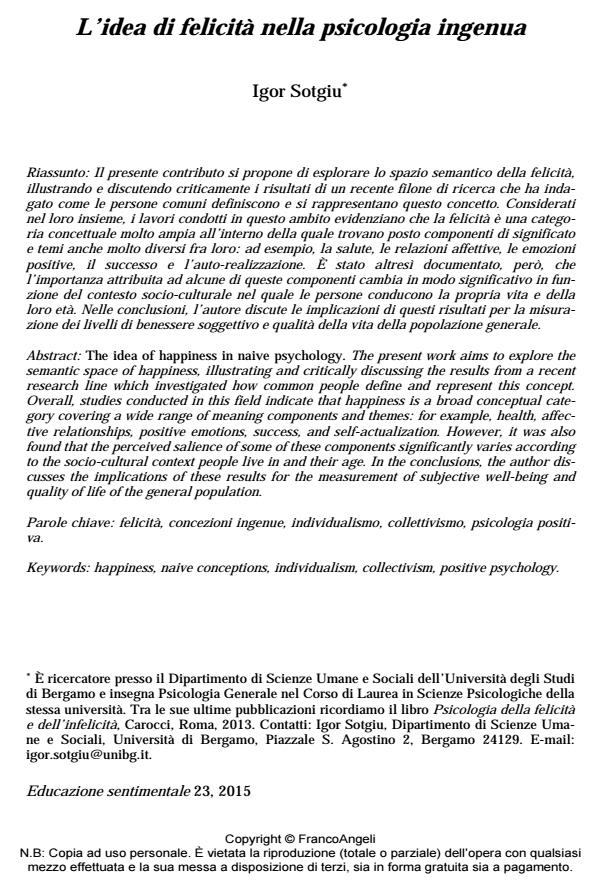L’idea di felicità nella psicologia ingenua
Journal title EDUCAZIONE SENTIMENTALE
Author/s Igor Sotgiu
Publishing Year 2015 Issue 2015/23
Language Italian Pages 8 P. 116-123 File size 73 KB
DOI 10.3280/EDS2015-023011
DOI is like a bar code for intellectual property: to have more infomation
click here
Below, you can see the article first page
If you want to buy this article in PDF format, you can do it, following the instructions to buy download credits

FrancoAngeli is member of Publishers International Linking Association, Inc (PILA), a not-for-profit association which run the CrossRef service enabling links to and from online scholarly content.
The idea of happiness in naive psychology. The present work aims to explore the semantic space of happiness, illustrating and critically discussing the results from a recent research line which investigated how common people define and represent this concept. Overall, studies conducted in this field indicate that happiness is a broad conceptual category covering a wide range of meaning components and themes: for example, health, affective relationships, positive emotions, success, and self-actualization. However, it was also found that the perceived salience of some of these components significantly varies according to the socio-cultural context people live in and their age. In the conclusions, the author discusses the implications of these results for the measurement of subjective well-being and quality of life of the general population.
Keywords: Happiness, naive conceptions, individualism, collectivism, positive psychology.
Igor Sotgiu, L’idea di felicità nella psicologia ingenua in "EDUCAZIONE SENTIMENTALE" 23/2015, pp 116-123, DOI: 10.3280/EDS2015-023011